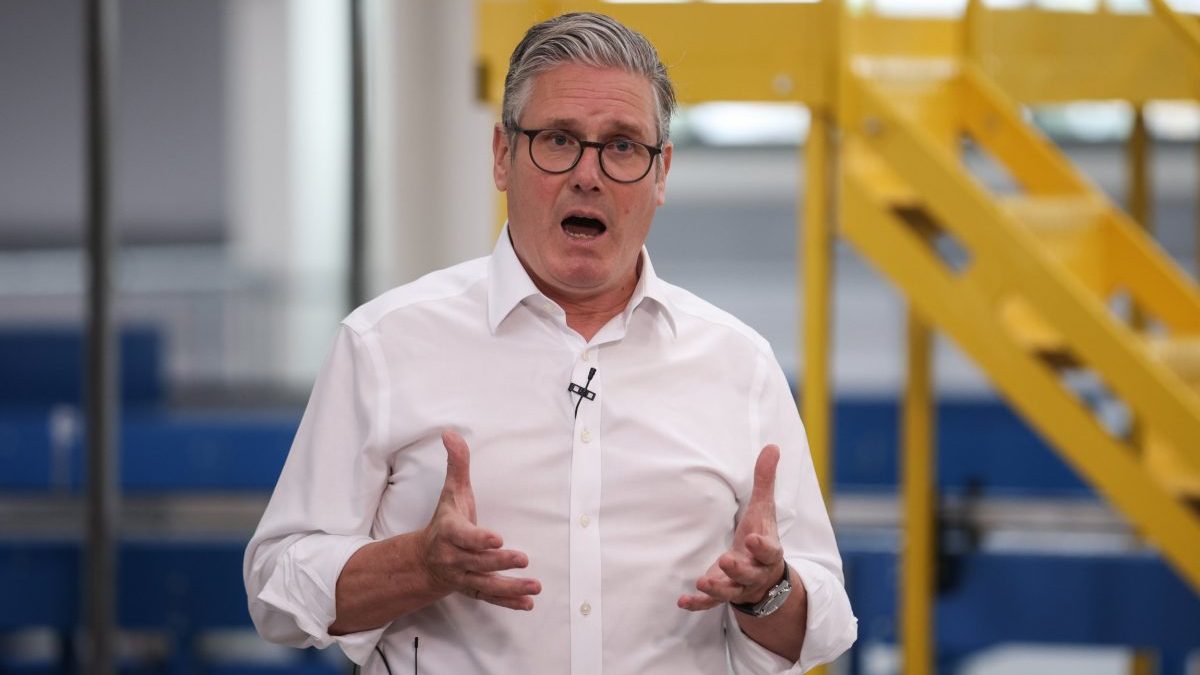Almost every age group backs the triple lock despite concerns it is becoming an unaffordable promise
Voters back the state pension triple lock by a huge margin, polling shows, with more than half of 25 to 34-year-olds supporting the measure.
The strength of support poses a political headache for Sir Keir Starmer and other party leaders, given the costliness of the policy and the pressures on public finances.
The triple lock was introduced by David Cameron in 2010 and guarantees that the state pension rises each year by the highest of 2.5 per cent, inflation, or earnings growth.
In April it went up £472 a year, with the increase linked to wages, which had risen by 4.1 per cent.
The policy’s design works as a ratchet effect driving up expenditure, with critics claiming it is becoming increasingly unaffordable.
However, polling by BMG Research conducted at the end of May shows that it continues to command strong public support among almost all age groups.
The poll of 1,510 adults in Great Britain between 28 and 29 May found that 57 per cent of voters support the triple lock, with only 7 per cent opposed.
Even among those far away from retirement age, support for the measure considerably exceeds opposition.
For example, among 25 to 34 year-olds, 51 per cent back the triple lock, with just 10 per cent opposed.
Among those aged 55 and above, support stands at 76 per cent, with only 3 per cent against.
Since coming to power, Labour have been hit by a major backlash against Rachel Reeves’s decision to means-test winter fuel payments, with Starmer performing a U-turn last month with a pledge to widen eligibility to the allowance.
The poll found that 61 per cent of people thought that the Government was doing “too little” to support pensioners, with only 20 per cent thinking it was doing “about enough” and 9 per cent thinking it was doing “too much”.
The public considered pensioners to be the group which was most overlooked, followed by disabled people and people with long-term health conditions.
Many commentators believe that the backlash against the winter fuel decision has made is much less likely that Labour will abolish the triple lock, with Starmer saying his Government is “committed to the triple lock”.
Helen Morrissey, head of retirement analysis at Hargreaves Lansdown, said “Given the wide-ranging opposition to reform of the winter fuel payment it’s fair to say that any move to scrap the triple lock would receive enormous pushback.
“The debate has often been couched in generational fairness – not overburdening the working population so if the data shows the triple lock is also supported by younger age groups then this further complicates matters.”
The Conservative leader Kemi Badenoch has previously been accused of wanting to water down the triple lock, after saying she wanted to “look at means testing” in response to a question about the state pension. However, the Tories later denied that she had plans to abolish it.
Nigel Farage has also found himself under pressure over the triple lock.
At a press conference last week, the Reform UK leader refused to guarantee it if his party came to power. “The triple lock for pensioners is not something we’ve addressed as yet. We will, between now and the next election,” he said.
With Farage already facing scrutiny about the scale of Reform’s tax-cut and spending commitments, signing up to the policy would lead to further questions about whether his plans add up.
Liz Emerson, chief executive of the Intergenerational Foundation, said: “The public tends not to understand the cost of the state pension, let alone the cost of the triple lock ratchet, to younger and future generations.
“The triple lock adds around £12bn a year out of wider state pension spending of £140bn a year. The most recent estimate of the total state pension liability put it at £4.8 trillion, equivalent to 224 per cent of GDP. Furthermore, overall mortality rates remain in line with the best years ever recorded, which is of course welcome news, but that increasing longevity will further add to the cost of the triple lock. In short, the triple lock is unaffordable on intergenerational fairness grounds.
“Add pandemic spending and cost-of-living crisis welfare support and it’s obvious why today’s government is having to make such tough spending decisions.”
